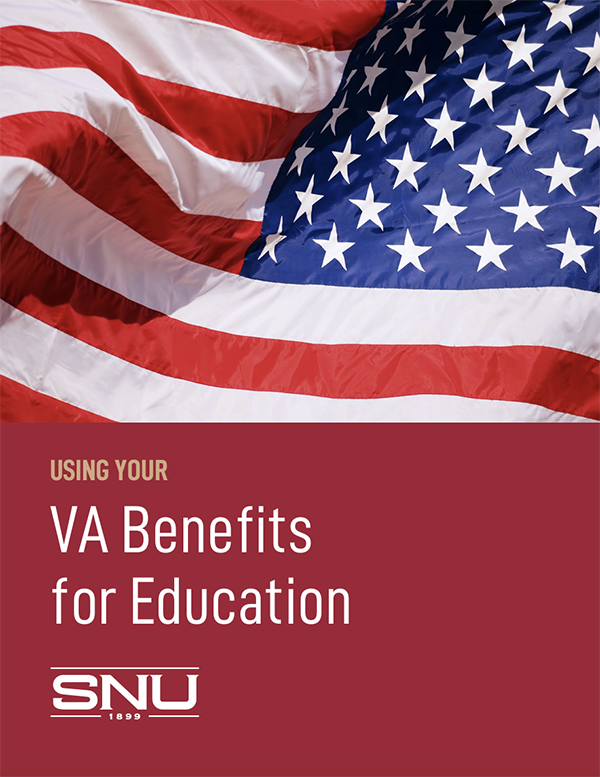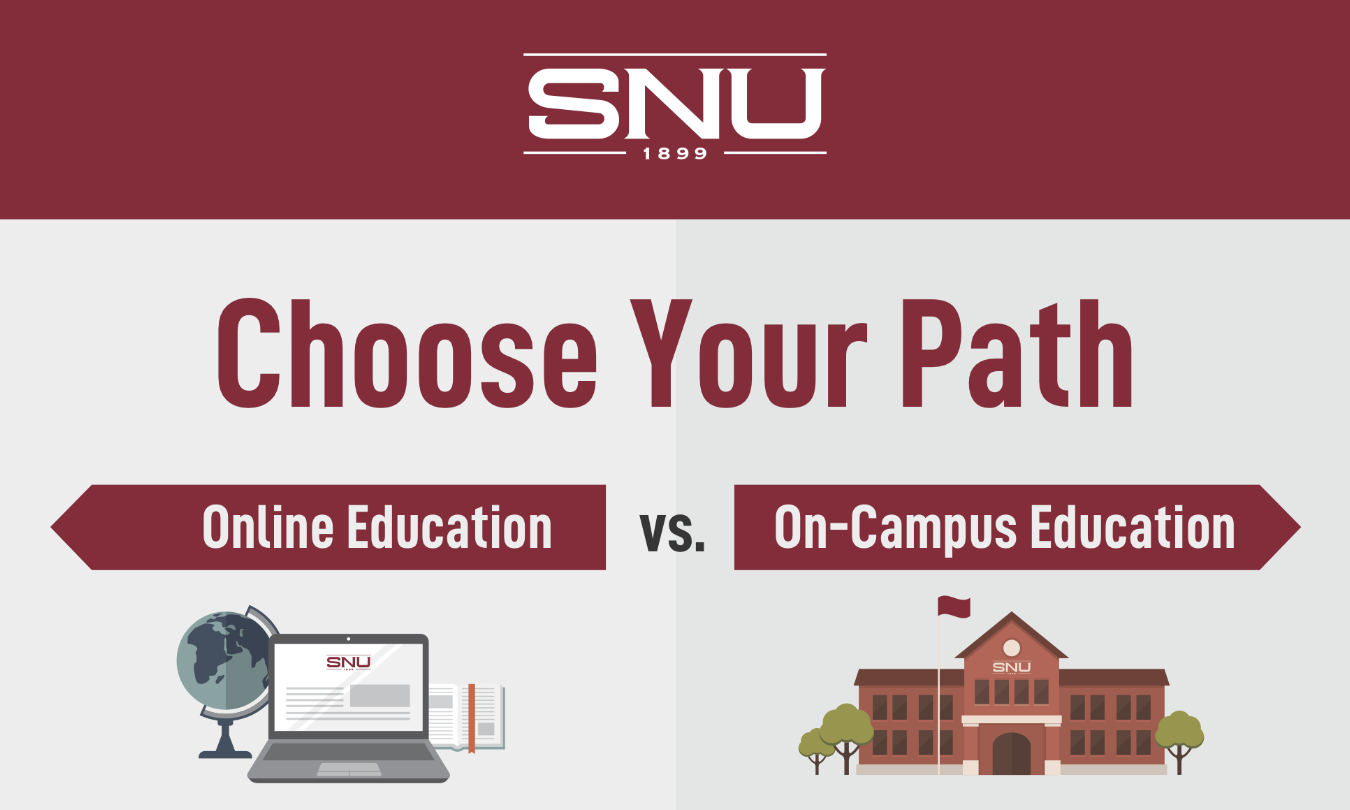-
Programs
Not Sure Where to Start?
- Associate Programs & Certificates
- General Studies
- Associate of Arts in Business
- Physical Therapist Assistant
- Professional Services & Certificates
- Special Education Bootcamp
- View All
- Undergraduate Programs
- Business Administration
- Criminal Justice
- Cybersecurity
- Education
- Family Studies and Gerontology
- Healthcare Administration
- Organizational Leadership
- Accelerated General Education
- View All
- Graduate & Doctorate Programs
- Doctorate of Education in Administration & Leadership
- M.A. Administration of Special Ed.
- M.A. Applied Psychology
- M.A. Educational Leadership
- M.A. Sports Management & Administration
- M.A. Teaching
- MBA, 12- 18 months
- MBA - Healthcare Administration
- Master of Organizational Leadership
- M.S. Counseling Psychology
- M.S. Exercise Science - Health & Human Performance
- M.S. Exercise Science - Wellness
- M.S. Instructional Design Technology
- M.S. Management
- M.S. Physician Assistant
- Alternative Certification (Teaching or Special Ed.)
- View All
- Resources
- Tuition & Aid
- Military

Introduction
Today’s veterans are increasingly investing in their education, but that doesn’t mean the process of going back to school is always an easy one. In 2016, almost half of veterans were parents. Just 15 percent of veteran students are younger than 23. As adults navigating myriad responsibilities while facing the challenges of reintegrating into civilian life, veterans need plenty of support. Your VA benefits can reduce the costs of school, making it easier to pursue the education and life you deserve.
Download a PDF version of this guide by filling out this form, or keep scrolling to learn more.

Chapters
Benefits of Returning to School as a Veteran
Decoding Education Benefits Available to Veterans
How to Apply for VA Education Benefits
Tips for Selecting the Right University
Myths and Frequently Asked Questions
Conclusion

Benefits of Returning to School as a Veteran
With a million veterans enrolled in college under the new GI Bill ®, it’s clear that soldiers recognize the value of a good education.
A college degree opens new doors and can mean making more money to support your family. In 2017, bachelor’s degree recipients had median weekly earnings of $1,173, compared to just $712 for people with a high school diploma and no college experience.
Many veterans find that the skills they learned in the military go unrecognized in the civilian world. You might have managed a large group of soldiers, mastered the art of strategic planning, communicated in a wide range of high-stress circumstances, and learned never to lose your cool. Research consistently shows that veterans think civilian managers will recognize these skills. Too often, though, they don’t. Especially if you seek a job in which few or no employees have a military background. The people in charge of hiring are unlikely to recognize what you know and where you’ve been.
A college degree opens new doors and can mean making more money to support your family. Going to school increases your employability, giving you significant financial security.
A college degree levels the playing field. Employers increasingly want staff members with degrees, even for jobs that previously did not require them. In 2018, nine out of 10 new jobs required a college degree. Going to school increases your employability, giving you significant financial security.

Decoding Education Benefits Available to Veterans
The VA offers numerous education benefit programs that may help you go to school. They include:
Post-9/11 GI Bill ®
Veterans with at least 90 days of total service after September 10, 2001, are eligible for the Post-9/11 GI Bill ® if they are honorably discharged.
The payment amount depends on how long a soldier served, as well as the type of school they attend. You can find your eligibility percentage using this tool. Those eligible for 100 percent compensation can get all of their tuition at a public, in-state school covered. If a veteran chooses a private or foreign school instead, the Post-9/11 GI Bill ® pays up to $24,476.79 per year. Purple Heart recipients and those with two years of active duty service can receive compensation at the 100 percent level.
The program also offers a housing allowance based on the zip code where the student resides. The VA pays up to 36 months of educational expenses. Tuition and fees will be paid directly to the school, not to the student. In most cases, a student can combine the Post-9/11 GI Bill ® with other benefits, including the Montgomery GI Bill ®.
A unique aspect of the Post-9/11 GI Bill ® is that eligible veterans can elect to transfer a portion of their benefits to family. It’s important to speak to a student aid advisor or financial planner before doing so, to ensure that all parties get sufficient funding for their education. This transfer right means that some dependents may also be eligible for the GI Bill ®.
Montgomery GI Bill ®
The Montgomery GI Bill ® extends benefits to soldiers who paid into the program. Eligible active duty beneficiaries pay $100 per month for 12 months. Once students have completed their minimum service obligation, they become eligible for compensation. Reservists with a six-year obligation are eligible for the program at the end of that obligation. The program pays up to $2,050 per month in educational expenses for a maximum of 36 months.
Students must use their benefits within 15 years of leaving the military. If you left the military after 2013, you’re eligible for the Forever GI Bill ® instead.
Students can combine the Montgomery GI Bill ® with most other programs, including the Post-9/11 GI Bill ®, when a student is eligible for both programs. So if your benefits are expiring soon, now is the time to enroll.
Reserve Educational Assistance Program
The Reserve Educational Assistance Program (REAP) offers assistance to Reservists who are called to war or a national emergency. Beginning November 29, 2019, REAP benefits are sunsetted. Many people eligible for REAP benefits are eligible for Post-9/11 GI Bill ® payments.

Fry Scholarship
The Marine Gunnery John David Fry Scholarship benefits spouses and children of soldiers who died in the line of duty after September 10, 2001. The program offers up to 36 months of benefits. Students who attend public schools as in-state students can get 100 percent of their tuition and fees covered. Those who elect private or foreign schools are eligible for $24,476.79 per academic year.
Beneficiaries cannot combine a Fry Scholarship with Survivors’ and Dependents’ Educational Assistance. So if you are eligible for both, talk to a financial aid counselor about which program offers more benefits in your specific situation. In most cases, a Fry Scholarship is the superior option.
Survivors’ and Dependents’ Educational Assistance Program
The children, dependents, and survivors of eligible veterans can get cash payments to help fund college or a vocational training program through Survivors’ and Dependents’ Educational Assistance Program (DEA). This program does not directly fund tuition costs, but can help offset them with monthly cash payments.
The specific amounts you are eligible for depend on when you enroll and whether or not you are enrolled full-time. Students enrolled in colleges as of 2019 were eligible for $1,248 per month. Enrollees who are also eligible for the Fry Scholarship must choose between the two programs. Once you select one program over the other, that selection is irrevocable.
Yellow Ribbon Program
The Yellow Ribbon Program is a component of the Post-9/11 GI Bill ®. It covers a portion of tuition the GI Bill ® doesn’t. For example, a student might be eligible for this program if they attend a private or out-of-state school. The amount of compensation a student receives depends on the government’s agreement with the school. In some cases, a student may receive sufficient funding to cover the entire coverage gap left by the Post-9/11 GI Bill ®.
Traditional SNU students hit the $24,000 limit in their second semester. Most students can get an additional $500 from the VA and an additional $500 from SNU to cover the gap. Depending on the student’s needs and similar factors, the actual value of this benefit ranges from $1 to $5000.
Veterans Readiness & Employment
Veterans Readiness & Employment (VR&E) helps veterans with service-related disabilities prepare for and find a job. The program covers a portion of living expenses as a former service member pursues vocational training. The specific compensation amount depends on factors such as the number of dependents a soldier has. For a veteran in full-time training with no dependents, the monthly payment is $631.85.

How to Apply for VA Education Benefits
The VA offers a number of options to help veterans apply for education benefits. Visit the VA online to assess your benefits eligibility, download the forms for each educational program for which you are eligible, and get answers to frequently asked questions.
You can also apply in person and get application assistance at a regional VA office. Find your local application center here. For more help with applications or to request an application in the mail, call 1-888-GI BILL-1 (888-442-4551).
A few simple tips for communicating with the VA can make the process easier. Try the following:
- Apply for benefits as early as possible so that long wait times and follow-up requests don’t delay your education.
- If you need help with something, go to a regional VA office so you can speak to someone in person.
- Ask specific, direct questions if you have a problem.
- Consider getting help from someone who is more experienced at dealing with the VA, such as an advocate from your school.
Students at schools that cater to veterans may also be able to get help in person. Many registrar offices offer application help. At SNU, we offer a dedicated Veterans Educational Transitions Success Center (VETS Center) fully staffed by veterans. Our team can help you identify all programs for which you are eligible and help you complete your application.
Veterans should also complete a Free Application for Federal Student Aid (FAFSA). This helps the U.S. Department of Education identify programs for which you may be eligible, including subsidized and unsubsidized student loans, grants, and state aid programs. SNU’s Office of Financial Aid can answer all of your pressing financial aid questions.

Tips for Selecting the Right University
With hundreds of colleges and universities eligible for VA benefits, it can be difficult to choose the program that’s right for you. A few questions can help guide your decision and narrow down your options:
- What is the right degree program for me? Does this school offer it? Is the specific program I’m interested in competitive and well-respected?
- Is the school accredited? Schools that are not regionally accredited may not offer a quality education, and students may have trouble transferring credits to another college.
- How large are classes?
- Who teaches the classes? Are they skilled professors or respected professionals in their field?
- Are there versatile degree options, such as night courses or online classes? If there is an online-only program, is it rigorous?
- What are post-graduation employment rates like? Does the school maintain data on how many students are employed in their chosen field within six months of graduation?
- Does the school cater to veterans with a dedicated office or support team? Just 75 percent of schools have a dedicated office that supports veterans, and the services these offices provide vary greatly. Get specific details about the support you can expect.
- Is the school military friendly? Victory Media maintains a list of Military Friendly Schools, as well as details about characteristics of schools that prioritize veterans’ needs.
- What is the cost of the program you’re interested in? What additional costs will you incur?
- How much student aid are you eligible for, and how much will you have to pay out of pocket?
- What is the school’s graduation rate? Does the school maintain data on veteran graduation rates?
Unfortunately, some schools take advantage of veterans. Soldiers who encounter serious problems applying for or enrolling in school may be able to complain to the federal government. GI Bill ® recipients can submit a formal complaint using the VA GI Bill ® Feedback Tool.

Myths and Frequently Asked Questions
Many veterans find themselves wading through a morass of bureaucratic confusion as they weigh their educational options. Here are some of the most common questions soldiers ask:
Can I combine VA benefits?
Many veterans are eligible for multiple VA education benefits. You can combine these benefits, but can only receive payments from one program at a time. So if you hit the funding or time limit on one program, you may be able to seek payments from a second program.
Veterans can also combine their VA benefits with other forms of financial aid, including federal student aid, state tuition assistance, scholarships, employer tuition assistance programs, and grants. Being a veteran means you’re eligible for more programs, not fewer.
Can I still get federal student aid?
Veterans should absolutely still apply for federal student aid. You may be eligible for loans, grants, and other forms of aid that can greatly decrease your cost of attendance. As a veteran, you can file your own income taxes rather than being claimed as a dependent by a parent. This may mean you have a lower income, opening doors to more income-based programs, such as Pell Grants.
How much assistance am I eligible for?
The specific amount of assistance you are eligible for depends on numerous factors, including how long you served. For example, veterans can get 60 percent of their tuition covered under the Post-9/11 GI Bill after six months of active duty service. After two years, they become eligible for 100 percent coverage as long as they meet certain basic criteria, such as being honorably discharged.
In addition to your VA benefits, you are also eligible for federal student aid. These programs can cover the entire cost of attendance, including transportation, books, housing, and other “hidden” expenses.

How do I know if I’ve chosen a school that really supports veterans?
There's been plenty of press coverage of the challenges veterans face when they go to college. Soldiers are more likely to enroll in colleges with low graduation rates. Many veterans opt to attend two-year colleges, but graduation rates at these institutions are abysmal. One investigation found that at a third of junior colleges that enrolled more than 100 GI Bill ®-eligible veterans, not a single veteran graduated.
Veterans may also carry a history of trauma that can make traditional classroom settings—replete with loud noises and unfamiliar faces—highly stressful. Between 11 and 20 percent of soldiers in Operations Iraqi Freedom or Enduring Freedom have PTSD. Rates of other mental health diagnoses, such as depression, are also high. These challenges can make it difficult for veterans to feel comfortable at school and to sustain the motivation to continue going to class.
With so much money available to fund soldiers’ education, many schools are eager to offer admission, but do little to support their students once they enroll. SNU is different. We know that veterans bring much to our school, and we do all that we can to support them to enroll, succeed, and graduate. Our chaplain can counsel struggling soldiers, while our dedicated Office of Veteran Services offers support from soldiers who have been exactly where you are now. Veterans can enroll in online courses, enabling them to complete classes from the safety and comfort of home. This can be especially helpful for soldiers who struggle with PTSD and may need to schedule classes for times when they are in a healthy headspace.
Ask what specific programs your chosen school offers to help veterans. It can also be helpful to consult with other veterans for insight or to ask the school if they can connect you to currently enrolled former military members.
Which schools accept VA benefits?
To use your benefits, you have to choose a school that is eligible. Most accredited colleges and universities accept the GI Bill ®. To find an eligible school, use the VA’s search tool.
Other Helpful Resources for Veterans Returning to School
Your military experience has already shown you that no person is an island. Everyone needs the support of a team to travel from where they are to where they want to be. These helpful resources can make the process of returning to school a little easier:

Conclusion
You’ve served your country. Allow your country to return the favor
by taking full advantage of your VA benefits.
SNU’s VETS Center is here to help you. SNU’s dedicated center addresses all needs, including tutoring, education, counseling, help dealing with VA medical issues, resume writing, and even vocational placement. We are the top tier Veteran Service Center in the state of Oklahoma.
Our team of caring veterans knows what it means to serve. Our office boasts four full-time veteran staff members who bring their 58 years of collective military experience to help you. We also have four part-time veteran employees, as well as one part-time staffer who is married to an active duty soldier. We also know how challenging it can be to transition to civilian life. We’re here for you. Let us help you write the next chapter.
GI Bill ® is a registered trademark of the U.S. Department of Veterans Affairs (VA). More information about education benefits offered by VA is available at the official U.S. government website at http://www.benefits.va.gov/
Download a PDF version of this guide by filling out the form









%20(1).jpg?width=920&height=480&name=GettyImages-1130282481%20(1)%20(1).jpg)
%20(1)%20(1).jpg?width=920&height=480&name=GettyImages-947295034%20(1)%20(1)%20(1).jpg)

%20(1)-1.jpg?width=920&height=480&name=GettyImages-659789466%20(1)%20(1)-1.jpg)


%20(1).jpg?width=920&height=480&name=GettyImages-1135697741%20(1)%20(1).jpg)